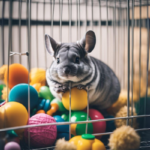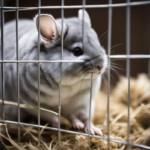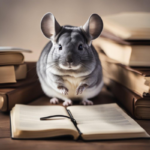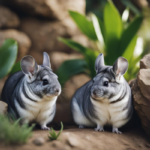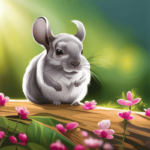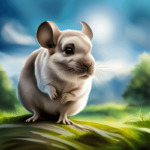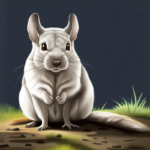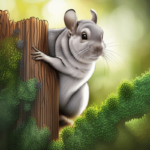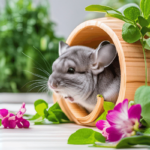Chinchillas, with their irresistibly fluffy coats and lively personalities, have become cherished pets for many. However, one peculiar behavior often leaves chinchilla owners scratching their heads Chinchilla Fur Chewing.
In this comprehensive guide, we’ll dive into the nuances of this behavior, exploring the reasons behind it and offering insights on how to address this quirky habit.
What is Chinchilla Fur Chewing?
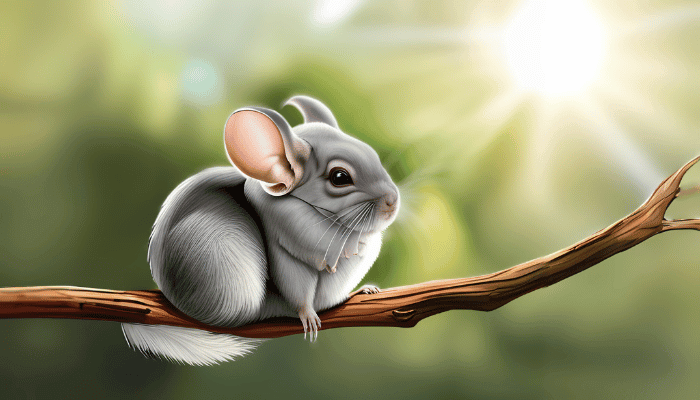
Chinchilla fur chewing, also known as fur biting, is a behavior where chinchillas chew or bite their fur excessively. This behavior may manifest in various forms, from nibbling at the tips of their fur to outright chewing large patches, leaving their beautiful coats looking a bit worse for wear.
Is It Normal?
The first question that might pop into your mind is, “Is chinchilla fur chewing normal?” Well, the answer isn’t a straightforward yes or no.
Chinchillas are meticulous groomers, spending a significant part of their day maintaining their soft and dense fur. Occasional nibbling can be a part of their grooming routine, but when it becomes obsessive or starts causing visible damage to their fur, it’s time to pay attention.
Why Do Chinchillas Chew Their Fur?
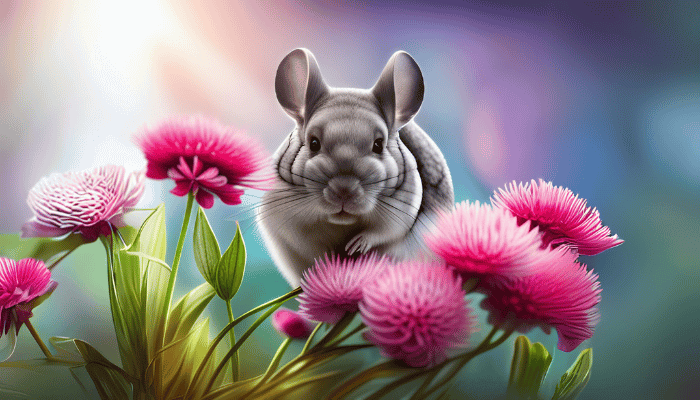
Understanding the reasons behind chinchilla fur chewing is crucial to addressing the issue effectively. Let’s delve into the possible causes:
Stress and Anxiety
Chinchillas, despite their playful demeanor, can experience stress. Changes in their environment, loud noises, or even the presence of other pets can trigger anxiety, leading to fur chewing as a coping mechanism.
Boredom
Just like humans, chinchillas can get bored. If their living space lacks stimulation or if they don’t have enough toys to keep them engaged, they might resort to fur chewing as a way to pass the time.
Dental Issues
Chinchillas have continuously growing teeth, and if they don’t have proper items to chew on, it can lead to dental problems. Fur chewing might be their attempt to alleviate discomfort in their teeth or gums.
Health Problems
Underlying health issues, such as skin infections or parasites, could be causing irritation, prompting chinchillas to chew their fur in an attempt to relieve the discomfort.
Social Isolation
Chinchillas are social animals, and if they feel lonely or isolated, they might resort to fur chewing as a way to cope with the lack of companionship.
Signs Your Chinchilla is Fur Chewing
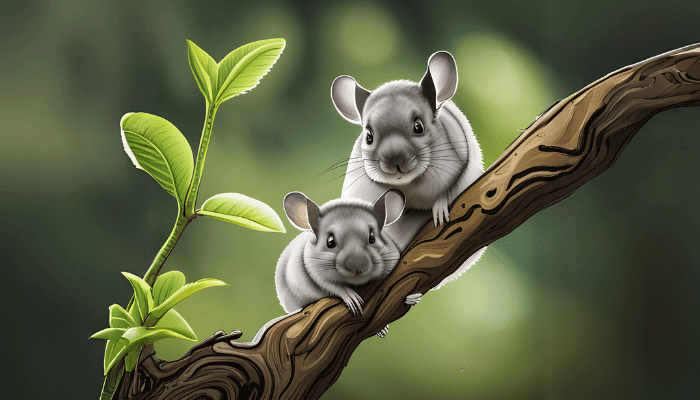
Recognizing the signs of fur chewing is vital for prompt intervention. Keep an eye out for these indicators:
Physical Signs
Patchy Fur: Observe your chinchilla’s fur for irregular patterns or patches, indicating fur loss due to chewing.
Red or Irritated Skin: Fur chewing can lead to skin irritation, causing redness or inflammation in affected areas.
Behavioral Cues
Excessive Grooming: While grooming is normal, excessive grooming or chewing is a red flag.
Restlessness: A stressed chinchilla may display restlessness or signs of agitation.
Addressing Chinchilla Fur Chewing: A Step-by-Step Guide
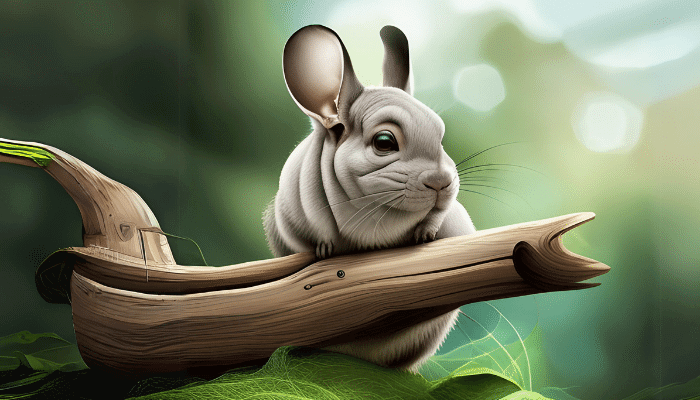
Now that we’ve uncovered some potential reasons behind chinchilla fur chewing, let’s explore how to address and prevent this behavior.
Create a Stimulating Environment
Ensure your chinchilla’s living space is enriched with toys, climbing structures, and items that encourage physical activity. This can help alleviate boredom and prevent them from turning to fur chewing out of sheer idleness.
Introduce Companionship
If your chinchilla is showing signs of loneliness, consider getting them a chinchilla companion. Social interaction with their own kind can significantly improve their mental well-being.
Regular Veterinary Check-ups
Schedule regular check-ups with a knowledgeable exotic pet veterinarian. Dental issues and health problems can be identified and treated early, preventing discomfort that might lead to fur chewing.
Gentle Discipline
If you catch your chinchilla in the act of fur chewing, use gentle discipline methods. Clapping your hands or making a sharp noise can startle them, making them associate fur chewing with an undesirable outcome.
Consult a Chinchilla Expert
If fur chewing persists despite your efforts, seeking advice from a chinchilla expert or experienced breeder can provide valuable insights. They may offer specific recommendations based on their expertise.
Conclusion
In conclusion, understanding and addressing Chinchilla Fur Chewing requires a holistic approach. By identifying the root causes, providing a stimulating environment, and ensuring proper dental care, you can promote your chinchilla’s well-being. Remember, a happy chinchilla is a healthy chinchilla, so embrace the joy of caring for these charming little creatures!
Chinchilla Fur Chewing FAQs
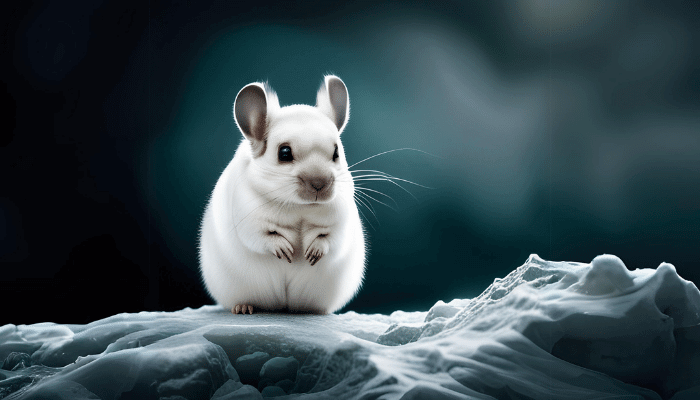
Why is my chinchilla chewing its fur?
Chinchillas may chew their fur due to stress, boredom, dental issues, health problems, or social isolation. Identifying the root cause is crucial in addressing the behavior.
Can Fur Chewing Lead to Health Issues?
Yes, fur chewing can lead to skin problems and infections. Regular veterinary check-ups are crucial to monitor your chinchilla’s health.
Are Certain Chinchilla Breeds More Prone to Fur Chewing?
While there’s no breed predisposition, individual chinchillas may have varying susceptibilities. It’s more linked to their environment and care.
How Can I Prevent Fur Chewing?
Enrich your chinchilla’s environment with toys, provide a balanced diet, and ensure regular veterinary check-ups to prevent fur chewing.
Is Fur Chewing a Sign of Loneliness?
Loneliness can contribute to stress, which may manifest as fur chewing. Consider providing companionship or engaging in activities to alleviate loneliness.
What are the best chew toys for chinchillas?
Chew toys made of safe materials, such as wooden blocks or pumice stones, are excellent choices for promoting dental health and preventing fur chewing.
When should I seek veterinary assistance for fur chewing?
If your chinchilla’s fur chewing persists despite your efforts, consulting a veterinarian is advisable. They can help identify and address any underlying health issues.
